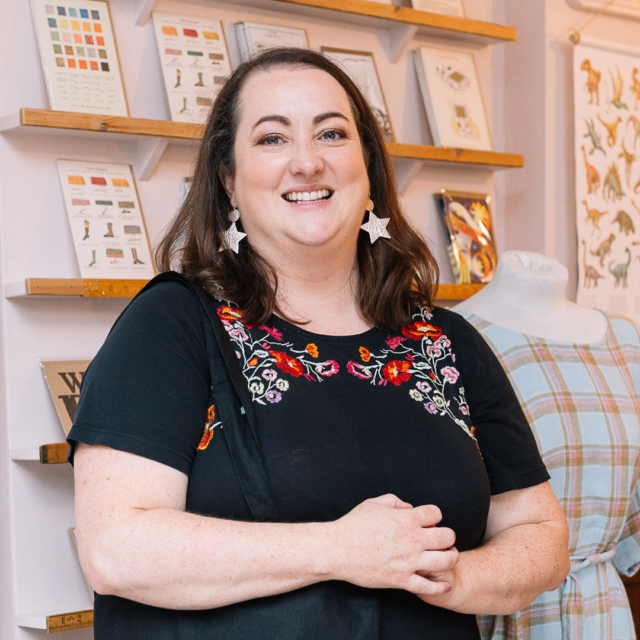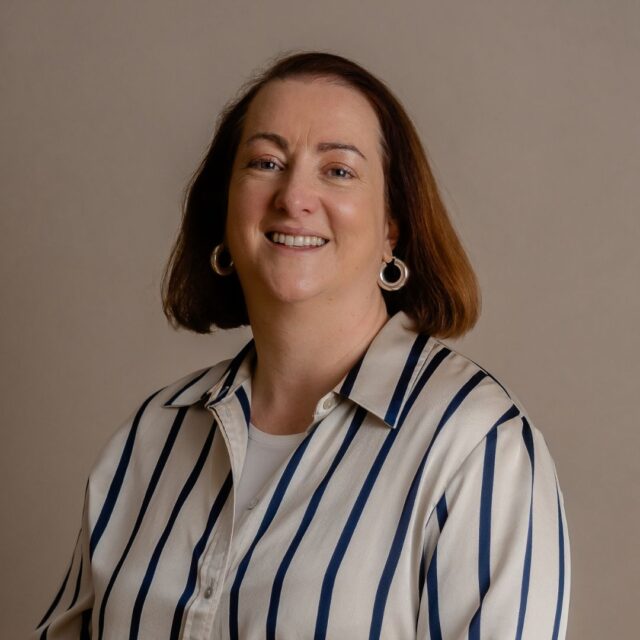Effective Sales Planning for Retail Stores
Catherine Erdly: Welcome. It is episode number 182 of the Resilient Retail Game Plan. Hello, I’m your host, Catherine Erdly. I’m also the founder of the Resilient Retail Club, which is my membership group and mastermind for product businesses. Head on over to resilientretailclub.com to find out more.
And specifically, if you’re interested in this topic and you want to join us inside the Resilient Retail Club for my five-day plan your year challenge, then head on over to resilientretailclub.com take a look at the membership page and you’ll be able to sign up with 50 percent off your first month if you join us before the challenge kicks off in the first week of February.
What I wanted to talk to you about today is planning your sales and specifically, what is the sales plan? Why do you need one? And what are some of the things that might hold you back when you’re trying to create a sales plan for your business?
Welcome to the Resilient Retail Game Plan, a podcast for anyone wanting to start, grow or scale a profitable creative product business with me, Catherine Erdly. The Resilient Retail Game Plan is a podcast dedicated to one thing, breaking down the concepts and tools that I’ve gathered from 20 years in the retail industry and showing you how you can use them in your business. This is the real nuts and bolts of running a successful product business, broken down in an easy, accessible way. This is not a podcast about learning how to make your business look good. It’s the tools and techniques that will make you and your business feel good.
Confidently plan, launch and manage your products and feel in control of your sales numbers and cash flow to help you build a resilient retail business.
What is a sales plan? How detailed does it need to be?
Catherine Erdly: Firstly, a sales plan, it’s extremely simple on the surface. It is your monetary goals for the business. If you are a small business first getting started, then having a sales plan that is looking at your sales on a monthly basis, that is absolutely fine.
That is plenty. You do not need it to be more detailed than that.
In fact, if anything, having a sales plan that is broken out by week or even more than that by day. It can feel a little bit difficult because there’ll be so much variation between the days in the month that you’re better off just zooming out, looking at the big picture and looking at the month only.
I do recommend you start with a month by month plan.
You may well find it easier to build it up by channel. And what I mean by that is, if you’re selling in lots of different places, for example, you’ve got a wholesale going on, you’ve got your own website, maybe you’ve got a store. Maybe you have got markets that you sell at. Maybe you sell on third party websites such as Etsy and not on the high street.
These may be easier for you to get your head around what your total sales goal should be for the year because you’re going to be looking at each one individually. So make sure you go through, you look at your history from last year’s a great place to start. And then you set yourself that goal by month for every single one of your sales channels. And then that allows you to tot it all up for the year.
The reason I like to do it by month rather than just setting a goal for the whole year is because that way you don’t have to wait till the end of the year to see whether or not you’re on track. You can actually measure yourself as you go throughout the year.
It’s also really, really important to look at your sales by month because you will see over time that you will have quiet months and you will have busy months. Now this is the same whether you turn over 10,000 a year. A hundred thousand pounds a year, a million pounds or a hundred million pounds. Then you will have months that are quiet and you’ll have months that are busy.
Big retailers, they have a sales plan for everything. They know their sales by store, they know it by week, they know it by day, and they get all the way down to by hour by store, which some might argue it’s both overkill, but this is something that they track very, very closely because they’re always working out whether they’re ahead or falling behind and then taking action to correct it.
And you can do that too. Again, you don’t need to be that detailed, but by month for certain you need to have a sales goal so you can understand where you’re at compared to where you thought you’d be at the beginning of the year.
Why do you need to have a sales goal?
Catherine Erdly: So what is the purpose? Why do you need to have this sales goal?
There’s a few different reasons that I’m a big fan of sales goals.
First things first, humans like numbers. We like targets. And this is a great way for you to have a clear idea of what you’re trying to achieve. It can be super motivating. Lots of people will tell me that it’ll get to the last few days of the month and they’ll be thinking to themselves, I’m so close. I’m nearly at my target.
And then it really spurs them on to take some action, to do something, to push them over there to the next level.
The other reason that I’m a big believer in sales targets and sales planning is because your cashflow, it’s so much easier for you to manage your cashflow. If you’ve got a forecast of how much money is going to be coming in.
It’s very difficult to actually have a clear idea of how much money you’ll have in your bank at any one time if you’re not at least forecasting what your sales are going to be coming in and so for me a sales forecast is a really crucial part of the cash flow. It’s also a really crucial part of your stock plan, big believer in stock plans, which are again, something that will really help you manage your stock, manage your cash in your business, and just generally feel like you’ve got much more of a handle on it.
And all of those things together really stem and they start from having a sales goal because answer to the question, how much stock should I have in my business always comes down to the question, how many sales are you planning on making because your stock and your sales should be really closely tied together.
You should be stocking your business based on your sales forecast.
So make sure that you have got that framework in place. Make sure that you have gone through and looked at by month, by channel and decided how much you’re going to be taking.
Once you’ve done that, you will have something that is motivating.
You can really clearly see your goal. You can clearly communicate it to anyone else in your business who’s working with you, whether that is somebody who’s assisting you with paid advertising, whether that’s somebody who works with you in your shop, all of these people that maybe work with you, it’s really important for them to be able to share in your vision as well.
And to understand what you’re actually trying to achieve month on month.
What might hold you back from having a sales goal?
Catherine Erdly: So. What might hold you back from having a sales goal? So here are some of the common reasons that people don’t set goals.
Number one, time. Obviously, small business owners are juggling so many different things. We’re wearing lots and lots of different hats.
We’re trying to run every single different element of our business. And as a result, it can be really difficult to find the time to sit down and do the planning piece for the year ahead and to set those sales goals.
It is the reason I do the five day challenge within the Resilient Retail Club. Again, that’s coming up first week in Feb. If you’d like to join us and you’re not a member, head over to resilientretailclub. com and you can join us and get your first month for half price, which means that you get to join the challenge for just 19 pounds.
And the reason that I I have this five day challenge that I’ve set it up. This is the fifth year I’m running it and super popular in January.
And the reason we do it is because it’s really hard to carve out that time to actually really go through and set your numbers unless you’ve got a specific deadline or you’re working through something. And it’s also really hard to find that time if you don’t fully grasp the importance of it. But let’s put it this way.
If you want your business to be more profitable, if you want to have better cash flow, if you want to pay yourself more from your business and you want to be able to manage your stock effectively so that it’s not just eating up all of the spare cash in your business and leaving none for you, then you need a sales goal.
That is absolutely crucial and that is very hard to do any of those things without your sales goal. So you need to take the time to set it.
So lots of people just don’t really grasp the importance of it. They’re not familiar with the importance and transformational nature of having a sales goal. And so they don’t make the time for it.
But if you absolutely can make the time for it, then it will be rewarding and it will really help you.
Another reason that people get really stuck with sales goals is they’ll say to me, well, my goal is I want to sell as much as I can. And I totally understand that. But my only problem with that as a goal is how do you know?
How do you know when you have sold as much as you can? It’s impossible to put a number on that. So you want to start with a tangible number so you know when to celebrate. It’s really important as business owners that we are able to stop and celebrate our successes. And if you set the sales goal, then you’ve got something that you can measure yourself against and you can celebrate when you beat it.
When do you know when to pop the champagne cork if you don’t have a sales plan, it’s really important. It’s part of that.
Another reason people tell me they don’t like to set sales goals is because it almost feels like it’s tempting fate or it feels like they’re setting themselves up for failure, and I definitely understand this as well.
And usually I think that comes down to how you’re setting the sales goal. So if you decide that you want to double or quadruple your sales for your business, and that’s not currently how the business is tracking, but you just think to yourself, right, I’m going to set myself as really big ambitious targets.
Unless they’re really backed up by things that you’re doing in order to double quadruple those sales, they’re very unlikely to happen. So therefore you’re going to end up feeling demoralized.
So the key with setting a sales goal is it wants to feel exciting. So you want to feel that little frisson of excitement when you think about hitting that number.
But it’s not so big and so scary that you just have absolutely no concept of how you’re actually going to be doing this. How are you actually going to achieve this? And so when it comes to tempting fate or feeling like I don’t want to say I’m going to take this because I’d be disappointed if I don’t, that’s where having a really solid basis in your history, looking back at what you took this time last year and also comparing it to how your business is tracking currently, that can be really beneficial and helping you actually set the right number so that you feel excited.
People also get really stuck on perfectionism or not knowing where to start. They think to themselves, right, well, I don’t really know where to start with the sales plan. I’ve no idea how to forecast. How do I even come up with a number? Or they get so bogged down into, well, I don’t know. Is, is September going to be, you know, 10, 350?
Or is it more likely to be 10, 100? They get really stuck in there. Well, I don’t know which number is going to be right. I don’t know. Or they get stuck on this feeling of not knowing where to start.
And here’s the secret about sales plans. The sales plan, the purpose of it is not to be right because it will never be right.
You are never ever going to say this month I’m going to sell 52, 130 pounds worth of products and then you’re going to sell that exact number. That just never ever happens.
When I worked in corporate retail, we used to have a forecast every week. The team. would on a Friday come up with a guess of what the number for the entire week was going to be on Monday when we walked in.
Now, there’s really only usually one extra day of trade, and maybe we hadn’t seen all the Friday numbers by that point, but it wasn’t like we were, this was a wild guess, right? This was just us taking where we were on the Friday and forecasting where we thought we were going to be on a Monday when we walked in to do our weekly reports.
Lots of retailers run their weeks from a Sunday to a Saturday, just so you know. Not that that’s particularly relevant, but fun fact for you.
So we would have loads of data. We were done almost the entire week and we were all, we were all experienced forecasters. This is what we did all the time. And we used to have this ridiculous disco calculator that looked a bit like the dance floor from Saturday Night Fever.
And whoever got the closest guess to the right number on a Monday morning got the calculator and it flashlights and played music and stuff like that. So the point I’m trying to make this story is that we were never dead on, even though we had all of this data, even though this is what we did for a living.
We were never absolutely on the nose, exactly how much money we took. I mean, we’re talking about across 200 plus store chains. So of course there’s going to be quite a variation, but the point is, That was just a bit of fun. The point of, that’s why we did it. The point of us having a sales plan is not to be right.
The point of having a sales plan is to understand where you are compared to where you thought you would be. So don’t overthink it. Even if you want to say, right, I want to take a thousand pounds a month every month for next year from the sales channel, boom, done. Don’t overthink it. It’s much more dangerous to spend too much time looking at it and never making a decision and just getting bogged down and scared and lost than it is to be really decisive and say, okay, this is how much I’m going to take.
But we go through all of this in the five day challenge. We go through how to look at it, how to look at history, how to use that to project forward. We look at how to generate ideas of what to do to, to actually move sales forward. And then at the end, you’ve got a fully broken down sales plan by month and by sales channel.
So. It’s a really great way of just getting that done in just five days, five short tasks. But that is something that often holds people back is that feeling of fear and just not really knowing and understanding how to, how to make the most of it and how to just, where to start and how to do it and how not to get completely tripped up by it.
So how do we actually create a sales goal? So this is something that we go through in the challenge, but basically I’m going to just touch on a few tips. First up, you need to think about what is actually going to drive the sales. I really like to have a sales goal that is based on some kind of fact or some kind of actual business tactic that you’re planning on doing that year so that you can move the business forward rather than just saying I want to double my sales.
You can say I want to double my sales, but I would really like it to come from you telling me how you’re going to double those sales. Is it that you’re going to improve your website conversion? Is it that you’re going to start paid advertising? Is it that you’re going to work with influencers? Is it that you’re going to go to twice as many events as last year? You can say I’m going to double my sales, but just make sure you know how you’re going to do it. And then really of those things that you think are going to grow your sales, really consider which ones are the key ones, which are going to contribute the most financially.
And then you can use a technique of combining your history with your current performance to come, come up with an idea of what your actual sales goal is going to be for 2024.
So, as I said, inside the challenge, we do five short tasks every day. And then we also have a very special sales goal calculator that I have honed over the last five years that will allow you to input all your history and what you’re planning on doing.
And it will help you come up with your sales goal number and then. We go into how to split it out into by month and by sales channel. So, do come along and join us. Head over to www. resilientretailclub. com Go to the membership section, sign up for the plan your year sales challenge.
Five day challenge happening in the first week of February. And you can join us for just half of your first month. And we would love to have you. If you. If you haven’t got a sales plan, I really would love for you to try it and set yourself one because I want you to see the transformative impact that it has on you and your business.
When you have that focus, it allows you to be so much clearer on what you’re expecting from the business. It helps you do So many important things like manage your cashflow and have a better idea of what your stock is. So if you feel like the business is a little bit out of control or a little bit more winging it and less about you having a clear plan and structure, then set yourself a sales goal.
I’d love to know what you thought about today’s episode. Why not jump over to Instagram at Resilient Retail Club, say hello, let me know. Are you going to be setting a sales goal? Go check out the membership resilientretailclub.com. Come on, join us for our plan your sales challenge. And of course, if you have a moment to rate and review the podcast, you can rate it inside the Spotify app and you can rate and review it inside Apple podcasts.
And it makes such a big difference. Of course, if you follow or subscribe, you’ll be the first to know about every new episode. Have a great day.






